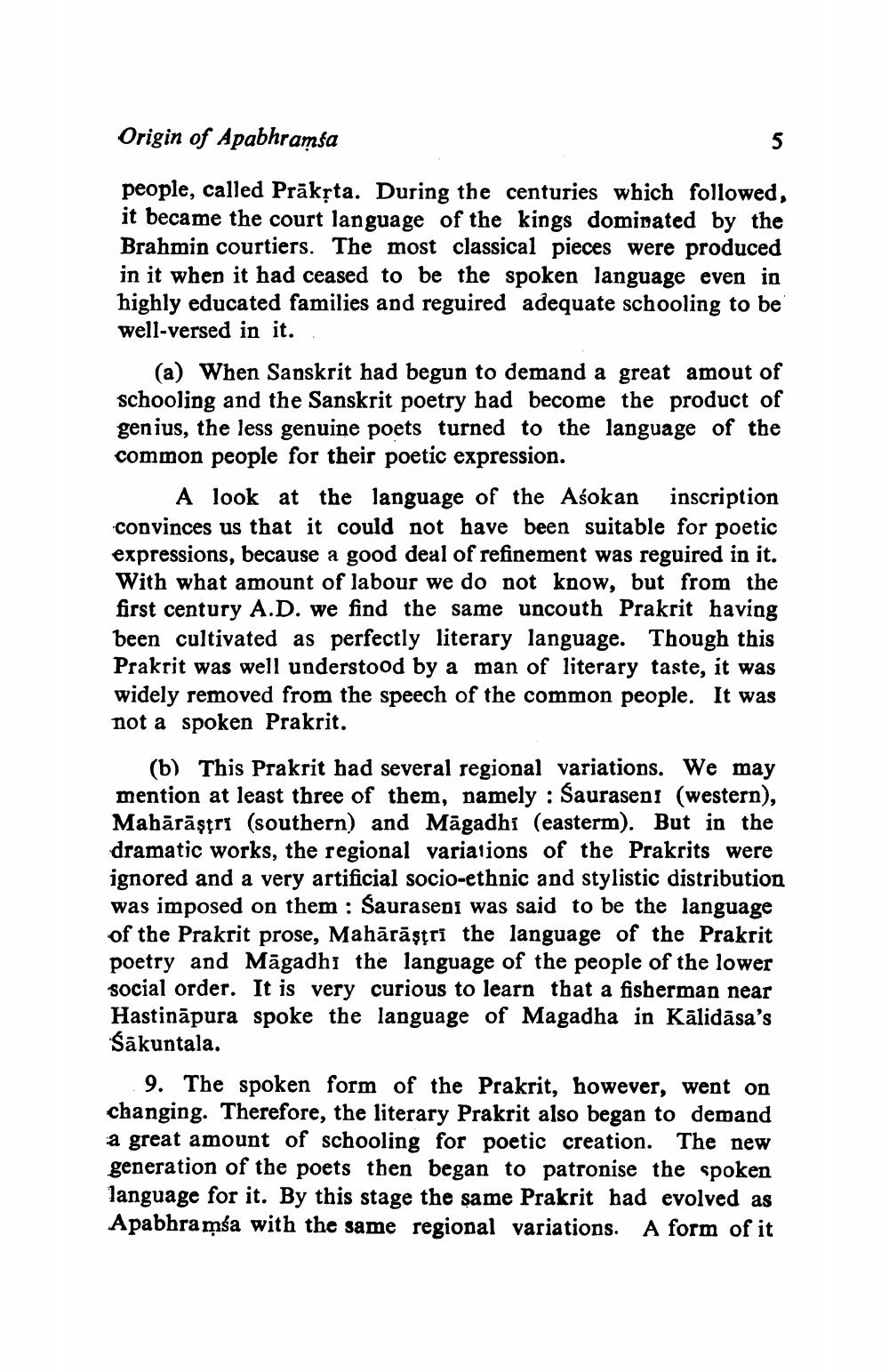________________
Origin of Apabhramsa
people, called Präkrta. During the centuries wbich followed, it became the court language of the kings dominated by the Brahmin courtiers. The most classical pieces were produced in it when it had ceased to be the spoken language even in highly educated families and reguired adequate schooling to be well-versed in it...
(a) When Sanskrit had begun to demand a great amout of schooling and the Sanskrit poetry had become the product of genius, the less genuine poets turned to the language of the common people for their poetic expression.
A look at the language of the Asokan inscription convinces us that it could not have been suitable for poetic expressions, because a good deal of refinement was reguired in it. With what amount of labour we do not know, but from the first century A.D. we find the same uncouth Prakrit having been cultivated as perfectly literary language. Though this Prakrit was well understood by a man of literary taste, it was widely removed from the speech of the common people. It was not a spoken Prakrit.
(b) This Prakrit had several regional variations. We may mention at least three of them, namely : Sauraseni (western), Mahārāşğrı (southern) and Māgadhi (easterm). But in the dramatic works, the regional variations of the Prakrits were ignored and a very artificial socio-ethnic and stylistic distribution was imposed on them : Sauraseni was said to be the language of the Prakrit prose, Mahārāştri the language of the Prakrit poetry and Māgadhi the language of the people of the lower social order. It is very curious to learn that a fisherman near Hastināpura spoke the language of Magadha in Kalidāsa's Sakuntala.
9. The spoken form of the Prakrit, however, went on changing. Therefore, the literary Prakrit also began to demand a great amount of schooling for poetic creation. The new generation of the poets then began to patronise the spoken language for it. By this stage the same Prakrit had evolved as Apabbra mśa with the same regional variations. A form of it




